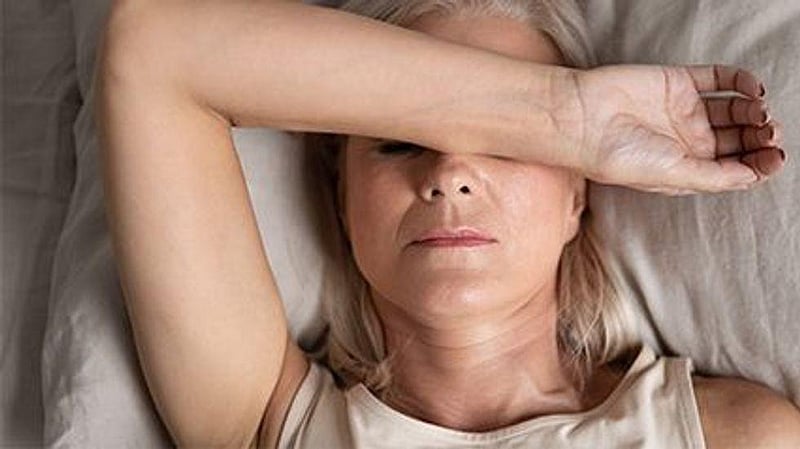(330) 876-1228
8507 Main StreetKinsman, OH 44428
(330) 876-1229

Women with a history of migraine headaches may suffer severe hot flashes during menopause, and this combo may boost their risk for heart disease, researchers say.
Migraine doesn't cause more or worse hot flashes -- or vice versa. But both are believed to be related to changes in blood vessels known as neurovascular dysregulation, according to Dr. Stephanie Faubion, medical director of the North American Menopause Society (NAMS).
A hallmark of heart disease is changes in blood vessels that supply blood to the heart.
"We believe that neurovascular dysregulation may explain the link between migraines and hot flashes, as well as the association of each with cardiovascular disease in women," Faubion said.
Faubion led a study that examined migraine, menopause and heart disease. She was scheduled to present the findings Wednesday at the NAMS annual meeting in Washington, D.C. Research presented at meetings should be considered preliminary until published in a peer-reviewed journal.
The study included more than 3,300 women (average age, 53), including 27% with a history of migraine.
Women with a history of migraine reported significantly worse menopause symptoms and were more likely to have severe or very severe hot flashes than women with no history of migraine, the investigators found.
"We may be able to better identify which women may have a worse time with hot flashes using this information, and be more proactive with strategies on prevention and treatment," Faubion suggested.
During menopause, when menstrual periods end, women have a dramatic drop in the female sex hormone estrogen. That causes many symptoms, from vaginal dryness to sleep disturbances to hot flashes.
For women who are significantly bothered by hot flashes and night sweats, hormone replacement therapy (HRT) is big help, Faubion said.
And women with a history of migraines can use HRT. "The doses are much smaller than what is used in oral contraceptives," so it won't harm these patients, she noted.
If you're a candidate for HRT, your doctor will likely prescribe a skin patch instead of pills, because hormone patches have fewer side effects, Faubion explained.
The bigger picture involves using findings from this new research to develop a better risk model for heart disease in women, she said.
"There are many female-specific risks for heart disease including gestational diabetes, high blood pressure during pregnancy, and possibly hot flashes during menopause," Faubion said. "Heart disease is the leading cause of death in women and we are still using risk prediction models made for men." This must change, she added.
Rebecca Thurston, past president of NAMS, is director of the Women's Biobehavioral Health Laboratory at the University of Pittsburgh. She reviewed the study findings.
"This study"¦ confirms that women with a history of migraine are at increased risk for severe hot flashes at midlife," Thurston said.
Meanwhile, a New York obstetrician/gynecologist pointed out that there are many ways to cope with hot flashes.
They include drinking more water, dressing in easily removable layers and carrying a small fan, said Dr. Jennifer Wu, who practices at Lenox Hill Hospital in New York City.
Non-hormonal treatments such as antidepressants may also help, Wu added.
Wu, who was not involved in the study, said all women going through menopause should see their doctor to make sure any heart-related risk factors are in check, whether or not they experience migraines or severe hot flashes.
"Women with a known family history of heart disease, in particular, should be more aggressive in managing heart-related risk factors, such as high cholesterol," she advised.
More information
The North American Menopause Society offers more about keeping your heart healthy at menopause.
SOURCES: Stephanie Faubion, MD, MBA, medical director, North American Menopause Society, Pepper Pike, Ohio; Rebecca Thurston, PhD, director, Women's Biobehavioral Health Laboratory, University of Pittsburgh; Jennifer Wu, MD, obstetrician-gynecologist, Lenox Hill Hospital, New York City; North American Menopause Society, annual meeting, Washington, D.C., Sept. 22, 2021
